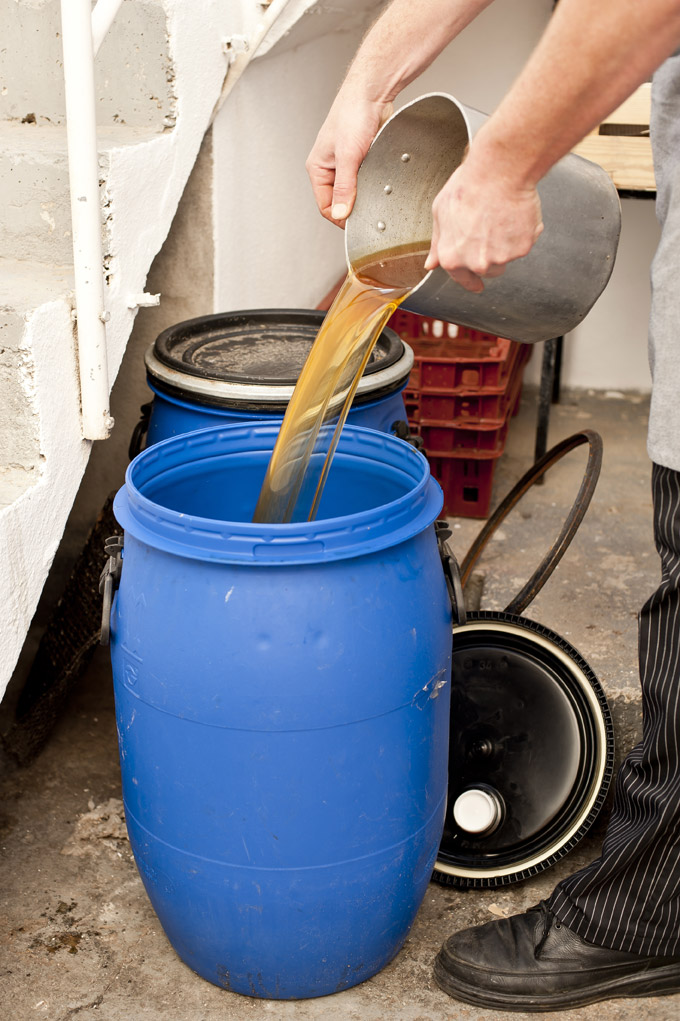
If not disposed of properly, cooking oil can be a hot mess. It can clog drains, which can lead to build up in pipes and local sewage systems. And, unfortunately, using hot water to melt grease to send it down the drain doesn’t prevent it from building up because eventually that water cools down in pipes.
So what can you do to avoid a plumbing disaster? A simple solution is to save your cooking oil and recycle it locally. While historically it has been viewed as a waste product, used cooking oil has become a valuable commodity over the past decade and the industry is expected to keep growing strongly. It’s now become a key ingredient in biofuels and home heating oil.
A significant benefit to biofuels derived from recycled cooking oil is that they typically burn clean, it have a low carbon content and do not produce carbon monoxide. It has helped many communities and restaurants in the U.S. reduce their carbon footprint.
Any used cooking oil or grease can be recycled and used to create biodiesel. This includes oil from some of the foods that we all love – bacon grease, chicken and pork fat, fish oil and vegetable oil.
A few simple steps:
- Let your pan or pot cool before pouring out the oil. If you only have a small amount, you can simply wipe it out with a paper towel.
- Use a non-breakable, clean container with a lid such as a Ball jar or peanut butter container and strain the oil to ensure that there are no small food particles.
- Visit our website to find out where you can recycle your cooking oil. Many cities and towns have free, designated drop off sites in addition to biodiesel companies that will gladly take the oil off your hands.
If you’re a restaurant owner and you aren’t recycling your cooking oil, you may be missing an opportunity. Recycling cooking oil now provides a form of revenue for many restaurants, which are sometimes compensated by cooking oil recyclers for their used deep fryer oil. Make sure to research biodiesel companies in your area to learn more.